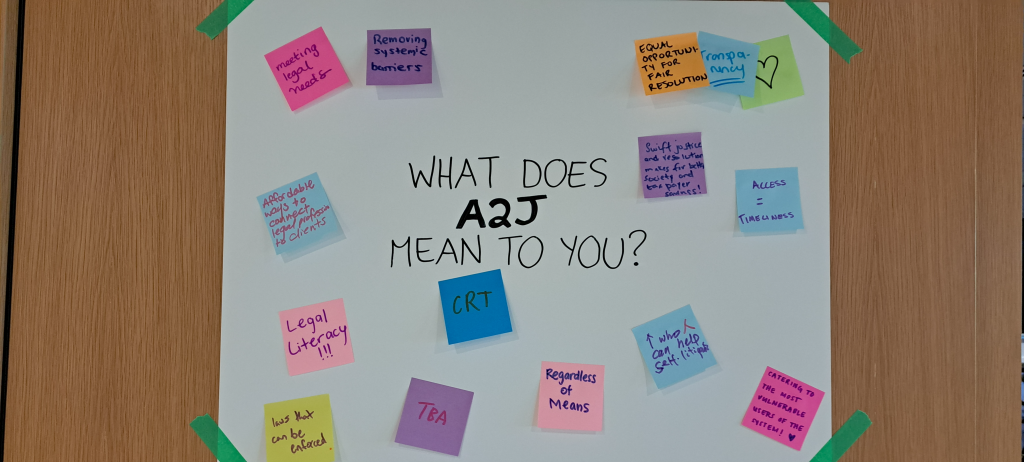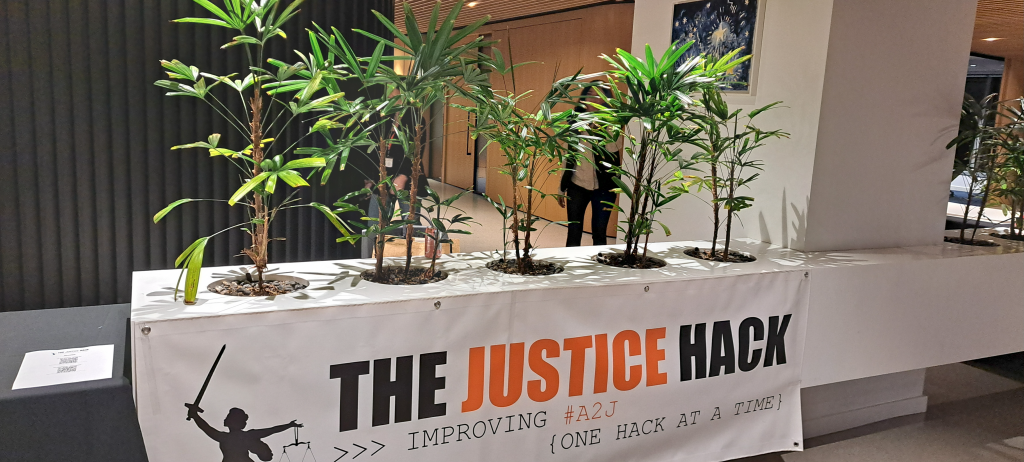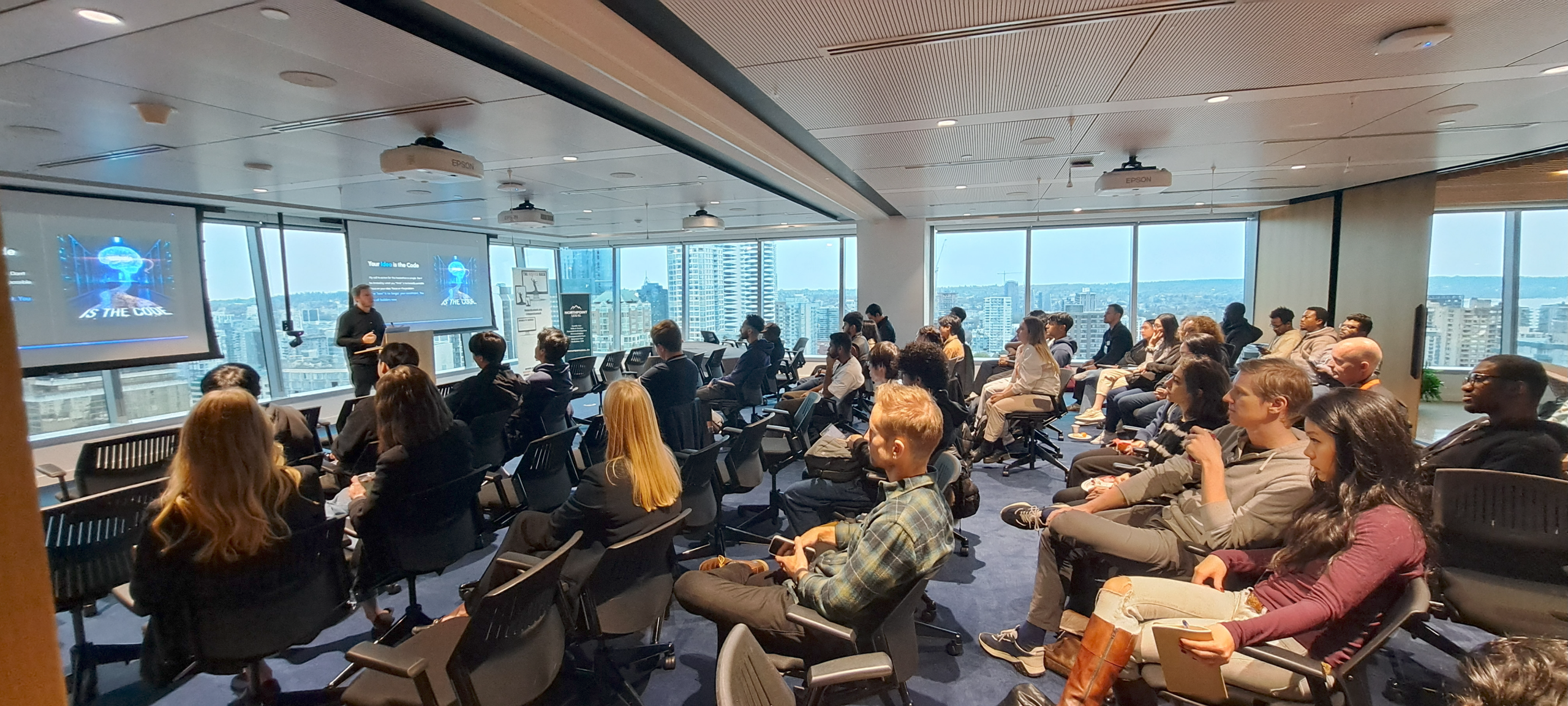The Justice Hack 2025: Employment & Workplace Rights Edition
This past weekend, more than 60 participants—developers, designers, justice professionals, and community advocates—came together in downtown Vancouver at McCarthy Tétrault for The Justice Hack 2025, a 24-hour sprint to design and prototype tools that make workplace rights easier to understand, enforce, and navigate.

Ten teams formed on Saturday morning, and by Sunday afternoon, nine working prototypes took the stage. Each tackled a different bottleneck in the justice system—choke points where information gets lost, confusion occurs, and people give up before they get help.
Closing the “first-mile” gap
Several projects honed in on what many legal advocates call the first-mile problem: the steep effort it takes just to tell your story. Intake is often where capacity disappears—every minute spent manually collecting facts or retyping notes is a minute not spent solving problems. Teams responded with conversational interview tools that structured facts as users spoke, voice-to-text and multilingual prompts that captured timelines, and automatic form fillers that generated tribunal-ready documents. The potential impact is huge: less burnout for advocates and faster, clearer help for clients.

Navigating the maze
Another cluster of teams targeted directional confusion—the “where do I even start?” moment that derails thousands of workplace complaints.
When one person’s “harassment” could belong to half a dozen agencies, or none, simple triage becomes essential. Prototypes here focused on clarity: wizards that help users find the right tribunal or process, smaller language models trained on real decisions rather than generic web text, and explainers that highlight when a claim may fall outside jurisdiction. Each aimed to save months—or years—of wasted effort.
Understanding the fine print
Workplace rights often hinge on the documents we sign. Another set of teams zeroed in on transparency: tools that unpack dense privacy policies, surface hidden data risks, or translate employment contracts into plain-language summaries. The goal wasn’t to replace lawyers, but to help workers and employers alike see what’s at stake before problems escalate.
Awards and recognition
Three projects stood out for their impact and potential:
- the Champion’s Award went to an employment-agreement analyzer that combines AI and lawyer insight,
- the Impact Award went to a multilingual intake tool that lightens the load on community legal services, and
- the Growth Mindset Award went to a guided pathway that helps workers route harassment complaints effectively.
Many thanks to the exceptional community that supports The Justice Hack, without whom our events could not happen. Full details on winners, mentors, judges, volunteers, and supporters are on our 2025 Special Thanks & Awards page.
Beyond the weekend
Participants met new collaborators, learned from mentors, and left with a better understanding of how their skills can drive change. As projects evolve, we’ll continue to be available to share resources and help teams find partners to carry their ideas forward.
Why it matters
Access to justice starts long before the courtroom. It begins when someone tries to understand a form, a policy, or a contract—and finds a barrier instead. By pairing legal insight with creative technology, this community is transforming those barriers into blueprints.
The Justice Hack was hosted at McCarthy Tétrault in Vancouver, our venue partner, and supported by our advocate Clio, supporter Northpoint Legal LLP, partner Access to Justice BC, and many others whose contributions made the event possible.
What’s next
Join us next time—as a participant, mentor, volunteer, or partner—and help turn everyday legal problems into solvable design challenges.
